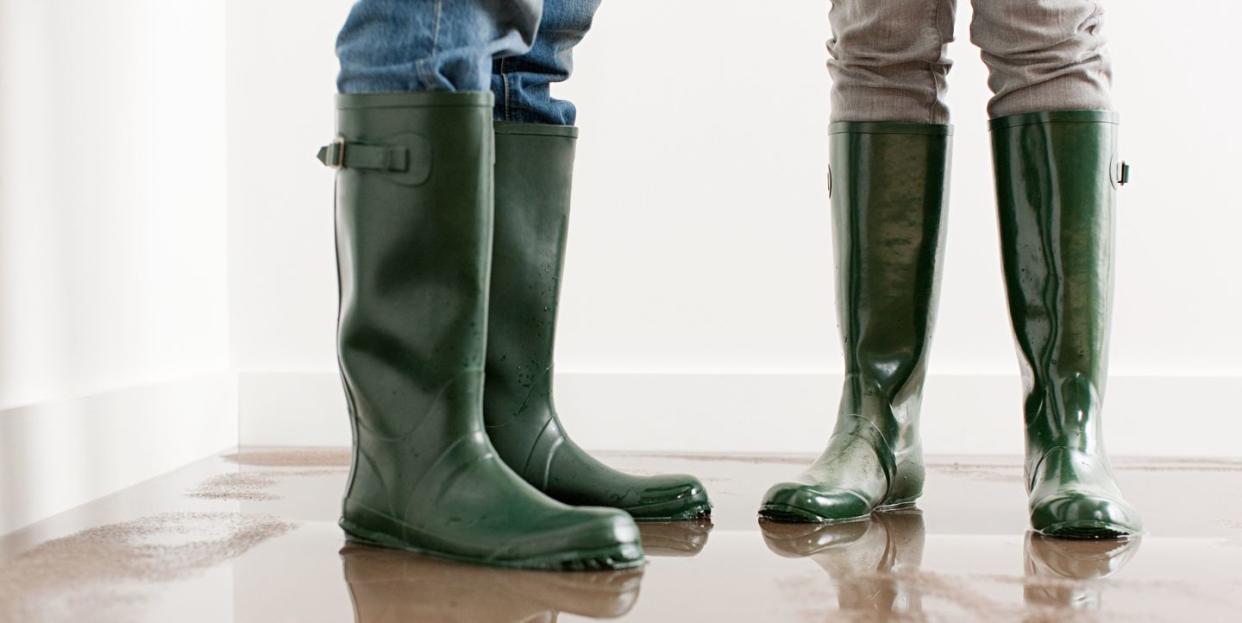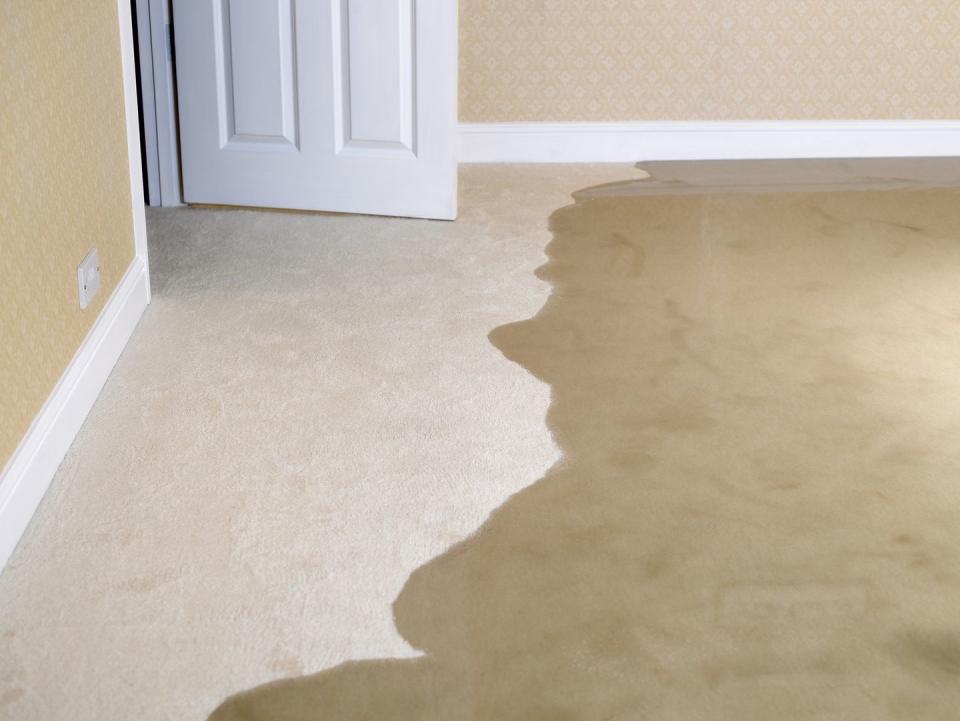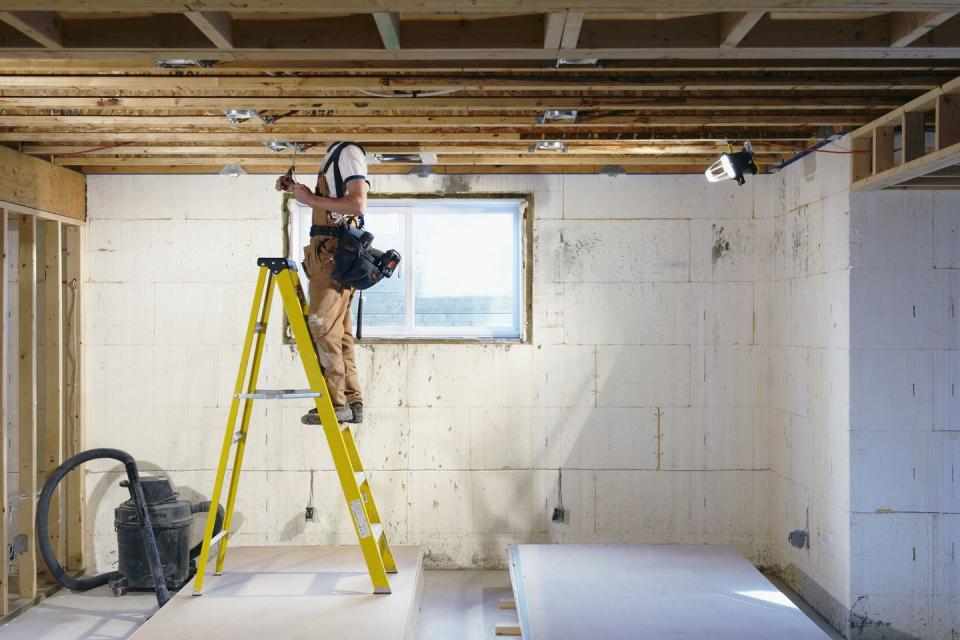Your Basement Just Flooded! Here's What To Do.

A flooded basement can cause even the most strong-willed homeowner to panic. If you're the queen or king of home maintenance (we're talking cleaning your windows and cleaning your gutters on a regular basis), you may be thinking: Where did all of this water come from? How much is it going to cost to fix this? And what about all of my stuff?! But fear not, because we're here to help you along the way. Below, we outline what to do when you first notice flooding in your basement, who you should call to help you fix the damage, and how to waterproof your basement so that you never have to deal with this headache ever again.
How much does it cost to fix flood damage?
According to the National Flood Insurance Program, floods are the #1 disaster in America, averaging more than $3 billion in claims per year. While most standard insurance policies don’t cover flood damage, separate flood insurance is available in most areas. Annual premiums for flood insurance average around $700 per year. Call your insurance provider or check your plan if you aren’t sure if you’re covered.
The cost to fix a flooded basement varies significantly based on the depth of the water and the type of the water (clean, storm, or sewage). Pumping out water and thoroughly drying a lightly flooded basement can cost around $500 to $1000. Depending on the size of your basement and the amount of water present, this cost can increase up to $10,000 if you need to repair flooring, walls, ceilings, and furnishings.

What's the first thing I should do if my basement floods?
Before you do anything, it’s important that you shut off any power sources associated with your flooded basement. If you’re not sure how to shut off the power to your basement, call an electrician before you enter the space and start cleaning up.
Next, you’ll want to determine the source of the water. If your flooded basement was caused by heavy rain or storm water, wait until the storm has passed before you start repairing your basement. If the water was caused by something else, like a burst water pipe in your home, take action as soon as you notice your basement is flooding.
If you’re not sure how your basement flooded, call a professional for help. A plumbing contractor, a basement waterproofing company, or a disaster restoration specialist will be your best bet.
How do I clean up after a flood?
Start your clean-up efforts by removing the water from your flooded basement with a pool pump, a wet/dry vacuum, or a mop and bucket. Once you’ve gotten rid of as much excess water as you can, move your damaged items out of the basement and into a well-ventilated area to let them dry out.
Give your items about 48 hours to dry out—if they’re still damp or wet after that, it’s probably best to throw them away in order to avoid mold or mildew. And those cardboard boxes that got a little wet? Go ahead and throw those out, too. They’re especially susceptible to bacterial growth, so stay on the safe side and just replace them with new ones.
If you have carpet in your basement, rip it out immediately so that the floor underneath can properly dry out. Give your basement several days of drying time. You can speed up the process by keeping doors and windows open as much as possible, and by placing fans around the space to increase air circulation.
Last but not least, wash your floors and walls to remove any dirt left behind by the floodwater. If you notice damaged drywall or insulation, call a professional to help you replace it with fresh materials in order to prevent the spread of mold.

How do I waterproof my basement?
To avoid basement flooding in the future, look into waterproofing your basement. Start by making sure your gutters and rain spouts are cleaned out year-round. When gutters are clogged, water can soak through your walls and down to your basement causing flooding and serious water damage. Your rain spouts should also direct water far enough away from your home that it doesn’t pool around the edges. Five feet away is a good rule of thumb.
Inspect the landscaping around the perimeter of your house. The ground should slope away from your foundation, not towards it, and plants should sit at least a foot away from your house. Be wary of trees close to your home as well. Their roots can cause basement water issues if they break through the foundation of your house and cause cracks.
Paint your basement walls and floors with a waterproof coating from your local hardware store. These paints usually work best for combatting minor dampness in your basement. You can also think about installing a sump pump, which redirects water that flows in through a drain away from your house.
When in doubt, it’s best to call a plumbing professional or basement waterproofing company. Get quotes from a few different people so that you can compare prices and plans of action. Be sure to ask whether the proposed plans are short-term fixes or long-term solutions. It’s always a good idea to check references and see if the company offers a warranty for their work.
You Might Also Like


